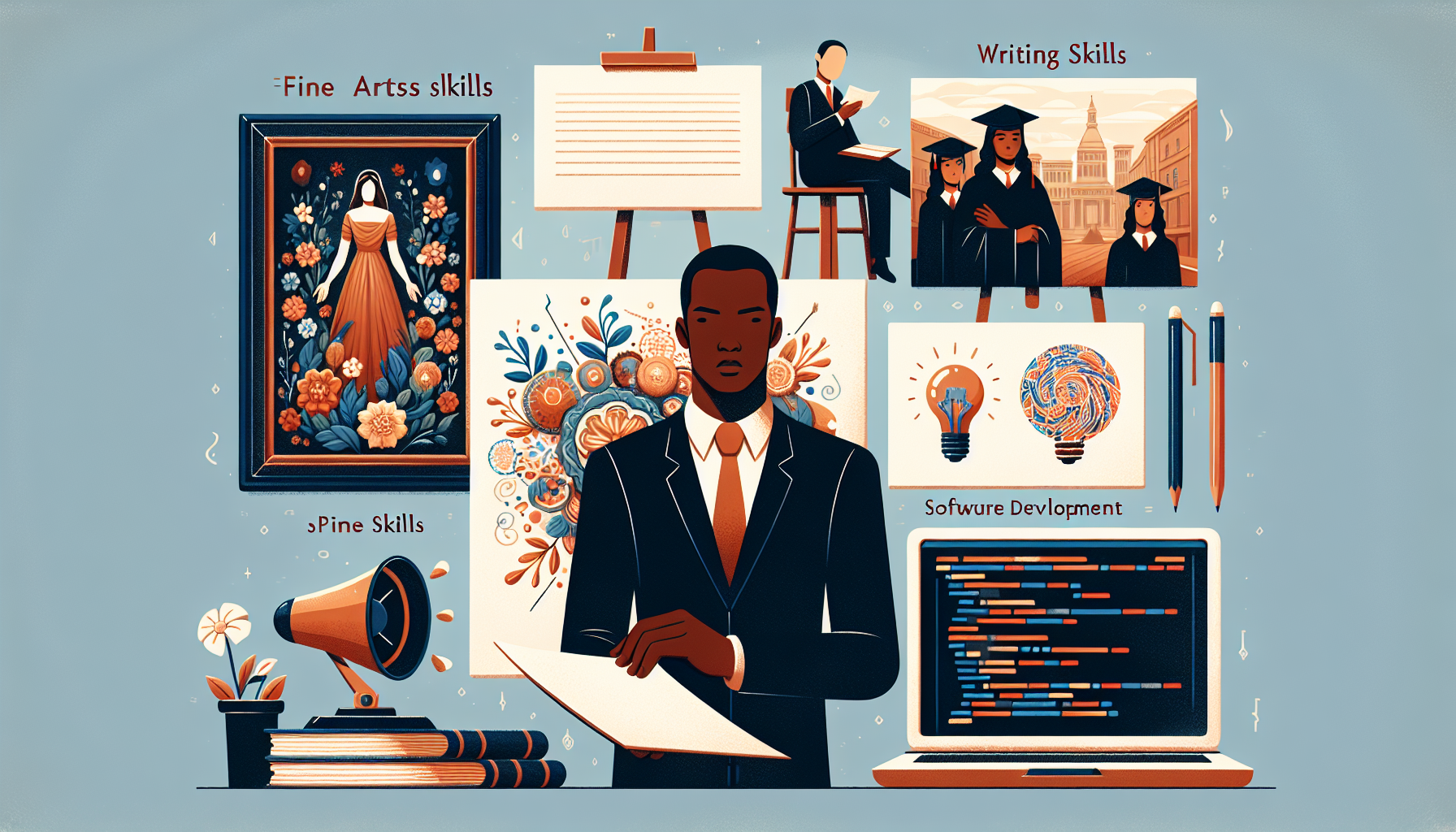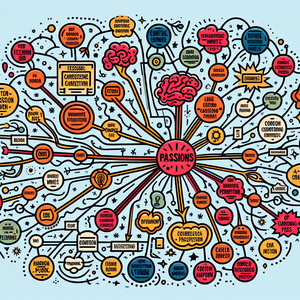Careers on the Move: Embracing the Rise of Stride Careers

Historically, career progression followed a predictable path. However, the global job market is evolving due to several factors: technological disruption, economic fluctuations, and changing societal values. According to a report by LinkedIn, 57% of workers are open to new job opportunities, indicating a growing acceptance of career fluidity. The COVID-19 pandemic further accelerated this shift, prompting many to reassess their career goals and consider alternative paths that align with their personal values and aspirations.
The Benefits of Adaptability
One of the most significant advantages of embracing a stride career is adaptability. In a world where industries can change overnight due to technological advancements, the ability to pivot is invaluable. Professionals who cultivate a diverse skill set can navigate job changes with ease, making them more appealing to employers. As companies increasingly seek individuals who can bring fresh perspectives and skills from different domains, those who embrace stride careers are often at the forefront of innovation.
Valuable Skills in a Dynamic Job Market
As the demand for versatile workers increases, certain skills have emerged as particularly valuable in the context of stride careers: 1. Transferable Skills: Core competencies such as communication, problem-solving, and leadership are crucial across all industries. Professionals must focus on developing these skills to facilitate smooth transitions. For instance, strong communication skills can help an individual effectively convey ideas in both technical and non-technical environments. 2. Networking: Building a robust professional network across various sectors is essential. Connections can open doors to opportunities that might not be advertised publicly and provide insights into different industries. Platforms like LinkedIn serve as valuable resources for networking and connecting with professionals from diverse fields. 3. Continuous Learning: A commitment to lifelong learning is key in a rapidly changing job market. Online courses, workshops, and professional certifications can help individuals stay updated with industry trends and acquire new skills that enhance their employability. According to the World Economic Forum, by 2025, 85 million jobs may be displaced by a shift in labor between humans and machines, highlighting the importance of upskilling.
Inspiring Stories of Career Navigators
To illustrate the potential of stride careers, let’s look at a few individuals who have successfully embraced this model: - Jessica M., a former marketing executive turned software developer: After several years in marketing, Jessica enrolled in a coding bootcamp to pursue her passion for technology. Today, she works as a software developer, often collaborating with marketing teams and leveraging her unique blend of skills from both fields. - Mark T., a teacher who transitioned to corporate training: After a decade in education, Mark realized he wanted to impact a broader audience. He transitioned to corporate training and now helps organizations develop their onboarding programs, drawing on his teaching experience to enhance employee engagement. - Sophie L., a hospitality manager who became a freelance consultant: After years in the hospitality industry, Sophie decided to leverage her expertise by becoming a freelance consultant. Today, she works with various hotels and restaurants, helping them improve their operations while enjoying the flexibility of her own schedule.
The rise of stride careers represents a transformative shift in how we approach our professional lives. By embracing adaptability, developing valuable skills, and learning from the experiences of others, individuals can navigate the complexities of today’s job market with confidence. The stories of those who have ventured down unconventional paths serve as a reminder that the future of work is not about sticking to a single trajectory but rather about exploring the myriad opportunities that await us. As we move forward, it is clear that careers on the move are not just a trend; they are the new norm, offering exciting possibilities for those willing to embrace change. The embrace of stride careers fosters a culture of innovation, resilience, and personal fulfillment, paving the way for a more dynamic and adaptable workforce.
Product Manager in Tech Startups
Tech startups, SaaS companies, Google, Amazon
Core Responsibilities
Oversee the product development lifecycle from ideation to launch, ensuring alignment with market needs and business goals.
Collaborate with cross-functional teams including engineering, marketing, and sales to define product vision and roadmap.
Analyze user feedback and market trends to iterate on product features and improve user experience.
Required Skills
Strong analytical skills to assess data and make informed decisions.
Excellent communication skills to articulate product concepts and strategies to varied audiences.
Familiarity with Agile methodologies and project management tools.
Data Scientist with a Focus on Business Intelligence
Consulting firms, financial institutions, technology companies
Core Responsibilities
Design and implement data models and algorithms to derive insights from large datasets.
Create interactive dashboards and visualizations to communicate findings to stakeholders.
Collaborate with business teams to identify key performance indicators (KPIs) and drive data-driven decision-making.
Required Skills
Proficient in programming languages such as Python or R, and experience with data visualization tools like Tableau or Power BI.
Strong statistical analysis skills and experience with machine learning techniques.
Ability to translate complex analytical concepts into actionable business recommendations.
UX/UI Designer Specializing in Mobile Applications
Mobile app development firms, e-commerce platforms, Apple, Spotify
Core Responsibilities
Conduct user research and usability testing to inform design decisions for mobile interfaces.
Create wireframes, prototypes, and high-fidelity designs that enhance user experience and engagement.
Collaborate with developers to ensure design feasibility and consistency across platforms.
Required Skills
Proficiency in design tools such as Sketch, Adobe XD, or Figma.
Strong understanding of user-centered design principles and mobile usability standards.
Ability to work in fast-paced environments and adapt designs based on user feedback.
Corporate Learning and Development Specialist
Corporations, educational institutions, training consultancy firms
Core Responsibilities
Design, implement, and evaluate training programs that enhance employee skills and knowledge across various departments.
Collaborate with leadership to identify training needs and align programs with organizational goals.
Utilize technology and e-learning platforms to deliver engaging and effective training solutions.
Required Skills
Strong instructional design skills and experience with Learning Management Systems (LMS).
Excellent interpersonal skills for effective collaboration and communication with diverse teams.
Ability to analyze training effectiveness and adapt programs based on feedback and performance metrics.
Digital Marketing Strategist with a Focus on Social Media
Marketing agencies, consumer goods companies, Nike, Coca-Cola
Core Responsibilities
Develop and execute comprehensive social media strategies to enhance brand awareness and engagement.
Analyze social media metrics to measure the effectiveness of campaigns and optimize future content.
Collaborate with creative teams to produce compelling content tailored to various platforms.
Required Skills
Strong understanding of social media platforms, trends, and analytics tools (e.g., Hootsuite, Google Analytics).
Excellent copywriting and communication skills to craft engaging posts and advertisements.
Ability to build and maintain a community online, responding to feedback and inquiries effectively.


